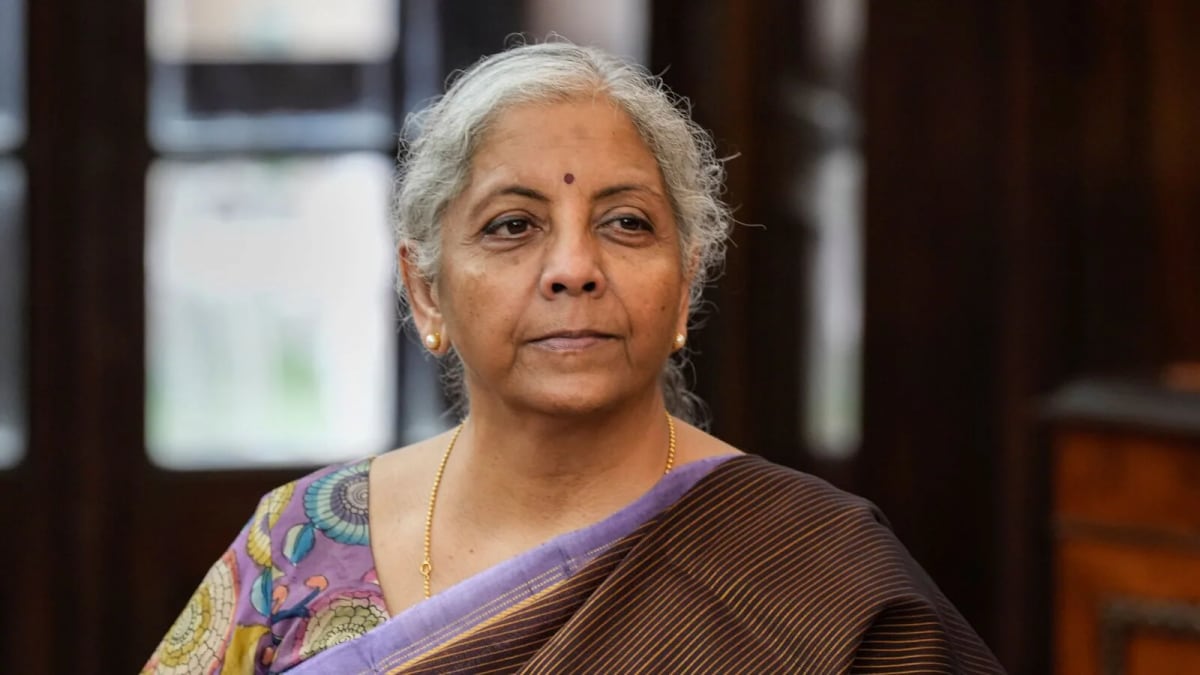Last Updated:
Nirmala Sitharaman highlighted India’s role as a reliable pillar in this changing landscape, pointing to fiscal consolidation, structural reforms and inflation control.

Finance Minister Nirmala Sitharaman
Finance Minister Nirmala Sitharaman on Friday described India as a “stabilising force” in an uncertain global economy, even as she warned that imbalances and volatility could reshape the international order. Speaking at the fourth edition of the Kautilya Economic Conclave 2025 in New Delhi, themed “Seeking Prosperity in Turbulent Times”, Sitharaman said the very foundations of global trade, alliances and financial systems are undergoing change.
“The international order is morphing. Trade flows are being reshaped, alliances are being tested, investments are being rerouted along geopolitical lines, and shared commitments are being re-examined,” she said in her inaugural address.
Recommended Stories
The minister underlined that describing the present as merely “turbulent” would be an understatement. “Omnipresent uncertainty has become the new norm,” she noted, adding that what the world is witnessing is not just a disruption but a “structural transformation.”
Reflecting on global power shifts, she said, “The global dominance of one power has given way to contestation, with Asian nations asserting alternative models of growth and governance. What we face is not a temporary disruption but a structural transformation. The question is: What lies on the other side of this transformation? What will the new equilibrium look like? Who will shape it, and on what terms?”
Sitharaman highlighted India’s role as a reliable pillar in this changing landscape, pointing to fiscal consolidation, structural reforms and inflation control. “Our growth is firmly anchored in domestic factors, which minimises the impact of external shocks,” she stressed, while also cautioning against complacency.
The finance minister drew attention to the difficult choices before developing economies. “These trade-offs are not easily resolved, yet they cannot be ignored,” she said, citing challenges such as balancing energy security with energy transition, growth with sustainability, and innovation with job creation.
She argued that “trade, financial and energy asymmetries” have created distortions in the global order. “We must ask ourselves: how can we build a global order where trade is fair, finance serves productive ends, energy is both affordable and sustainable, and climate action aligns with development imperatives?” she said.
Sitharaman also pointed to new disruptions — from digital currencies to geopolitical conflicts — that are forcing nations to adapt quickly. “Our capacity to absorb shocks is strong, while our economic leverage is evolving. Our choices will determine whether resilience becomes a foundation for leadership or merely a buffer against uncertainty,” she remarked.
Calling for collective action, she concluded: “We cannot afford to be passive spectators in a world where decisions elsewhere determine our destinies. We must be active participants, shaping outcomes where possible and preserving autonomy where necessary. Let us, therefore, treat this moment not only as a crisis but as an inflexion point… to lay out the contours of the future we wish to create.”
(With inputs from agency)
About the Author
The News Desk is a team of passionate editors and writers who break and analyse the most important events unfolding in India and abroad. From live updates to exclusive reports to in-depth explainers, the Desk d…Read More
The News Desk is a team of passionate editors and writers who break and analyse the most important events unfolding in India and abroad. From live updates to exclusive reports to in-depth explainers, the Desk d… Read More
October 03, 2025, 11:21 IST
Loading comments…
Read More



